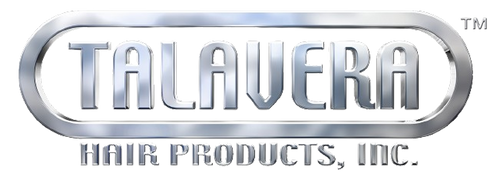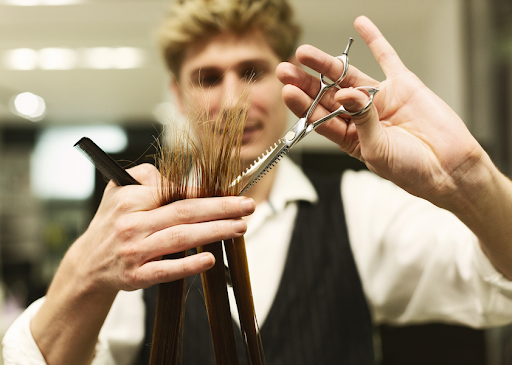Table of Contents
- Do You Really Need to Cut Inches to Fix Split Ends?
- What Is a Split End Trimmer, and How Does It Work?
- What Happens During a Regular Trim?
- Key Differences Between a Split End Trimmer and Regular Trim
- When Should You Use a Trimmer vs. Go for a Trim?
- Real Feedback from Users Who Switched
- Final Verdict: Which One is Right for You?
- See the Split Ender in Action
- People Also Ask
- Pro Maintenance Checklist
- Conclusion: Choose Based on Your Hair Goals
Do You Really Need to Cut Inches to Fix Split Ends?
You’ve spotted split ends and dead ends hair creeping up your strands, and now you’re facing the classic hair dilemma: Should you get a full trim at the salon or try a split end trimmer at home?
If you’re growing your hair or maintaining long, healthy strands, the fear of losing inches can feel real. The good news? Understanding whether does the split end trimmer work will help you decide if you can keep your length while tackling damage, or if it’s time for a full refresh.
This guide breaks down everything you need to know about split end hair trimmer devices versus traditional salon trims so you can make the best choice for your hair goals.
What Is a Split End Trimmer, and How Does It Work?
Before deciding does the split end trimmer work for you, here’s what it is:
A split end trimmer (also known as a split end cutter or split end machine) is a handheld device designed to remove split ends without sacrificing length. It works by guiding sections of dry, detangled hair through its chamber while rotating blades snip off the frayed ends sticking out. The rest of the strand remains untouched, allowing you to preserve length while getting rid of damage.
Learn more: Does the Split End Trimmer Work? Here’s What Real Users Say
What Happens During a Regular Trim?
A traditional trim involves visiting your stylist to cut away the bottom 1–3 inches of your hair to remove split ends and refresh your style.
- Benefits of a regular trim:
- Removes all split ends and damage
- Reshapes your haircut for fullness
- Refreshes your hair’s overall health
However, If you’re growing your hair or prefer keeping maximum length, regular trims can feel counterproductive, especially if your stylist is heavy-handed with the scissors.
Key Differences Between a Split End Trimmer and Regular Trim
Here’s a clear, skimmable table to help you understand does the split end trimmer work better for your needs:
|
Feature |
Split End Trimmer |
Regular Trim |
|
Amount of Hair Removed |
1/4 inch (only split ends) |
1–3 inches (full trim) |
|
Time Needed |
Fast (15–20 mins) |
30–60 mins |
|
Precision |
High |
Depends on stylist |
|
Tools Required |
At-home device |
Salon visit + scissors |
|
Cost Over Time |
One-time device purchase |
Ongoing salon costs |
When Should You Use a Trimmer vs. Go for a Trim?
Split End Trimmer is ideal for:
- Maintaining length while removing split ends.
- Growing out hair while managing damage.
- Curly or textured hair that you don’t want to lose shape.
-
In-between salon visits to extend the time between cuts.
Regular Trim is better when:
- You have heavy damage that needs a fresh cut.
- You need a shape refresh for your hairstyle.
- You’re dealing with uneven ends, breakage, or excessive thinning.
Summary:
If your goal is length retention, a split end trimmer can help you manage split ends while preserving your hair’s length. For reshaping and a complete health reset, a traditional trim is still valuable.
Real Feedback from Users Who Switched
Wondering does the split end trimmer work in real life? Here’s what users have shared:
“I’ve used the Split Ender Mini every 6 weeks, and it’s helped me grow my hair 4 inches while keeping the ends healthy.”
— Mia, curly hair user
“I was skeptical, but the trimmer removed my split ends without affecting my length. My hair feels softer and less tangled.”
— Leo, wavy hair user
“I use it between salon trims, and it’s saved me money while keeping my hair looking fresh.”
— Priya, long hair user
These testimonials reflect how split end hair trimmer tools can fit into a long-term hair health plan.
Final Verdict: Which One is Right for You?
Split End Trimmer:
- Great for length retention
- Ideal for managing minor split ends regularly
- Quick, at-home maintenance
- Cost-effective in the long run
Regular Trim:
- Best for heavy damage removal
- Helps maintain hair shape and fullness
- Refreshes your overall hair health
If you’re asking “does the split end trimmer work for preserving length?” — the answer is yes. It can be an excellent tool in your healthy hair routine, especially if paired with occasional salon trims for reshaping.
See the Split Ender in Action
Ready to see does the split end trimmer work for you?
Check out our Split Ender for demos, user results, and a deeper look at how this tool can help you maintain healthy, long hair without constant cuts.
People Also Ask
Is a split end trimmer better than scissors?
A split end trimmer removes only the damaged ends, preserving length, while scissors in a regular trim cut a larger portion of hair. Both are valuable tools depending on your goals.
Can I use a split end trimmer on curly hair?
Yes, split end trimmers are safe for curly hair when used on dry, detangled sections. They help manage split ends without disrupting your curl pattern.
Does the split end trimmer work on all hair types?
It works on straight, wavy, and curly hair, provided the hair is dry and detangled before use.
How often should I use a split end trimmer?
Every 6–8 weeks, depending on your hair’s condition and goals for length maintenance.
Will a split end trimmer damage my hair?
No, when used correctly, it removes only the frayed ends without causing additional damage.
Pro Maintenance Checklist
- Detangle hair before using the trimmer.
- Use on dry hair only.
- Section hair for even trimming.
- Follow up with a deep conditioning treatment.
- Track usage every 6–8 weeks for consistent maintenance.
Conclusion: Choose Based on Your Hair Goals
If you’re serious about keeping your hair healthy while growing it out, a split end hair trimmer is an excellent addition to your toolkit. It helps you maintain your length, manage split ends, and reduce the need for frequent salon cuts.
For reshaping, a full refresh, or if your hair has heavy damage, a traditional trim is still essential.
No matter which route you choose, prioritizing hair health and consistent maintenance will keep your hair looking and feeling its best.




